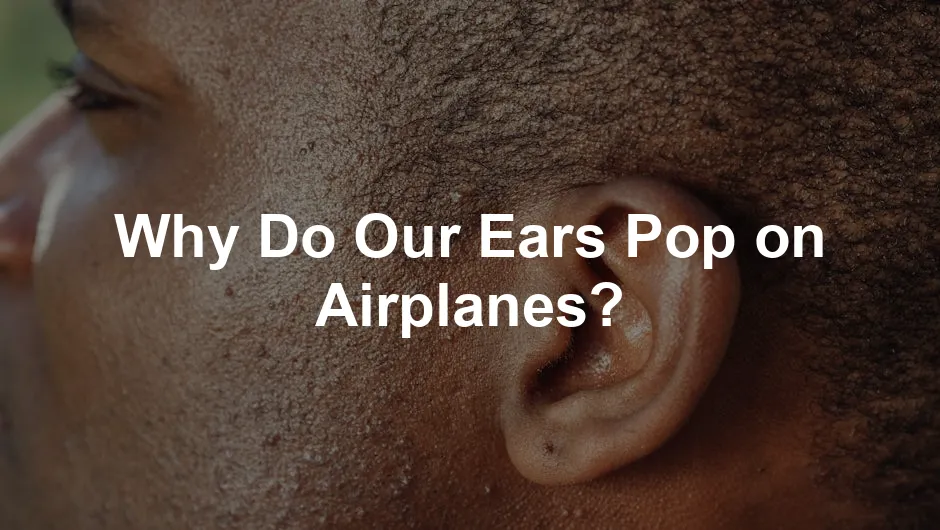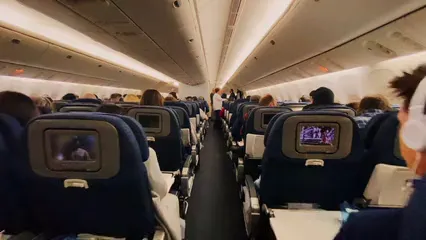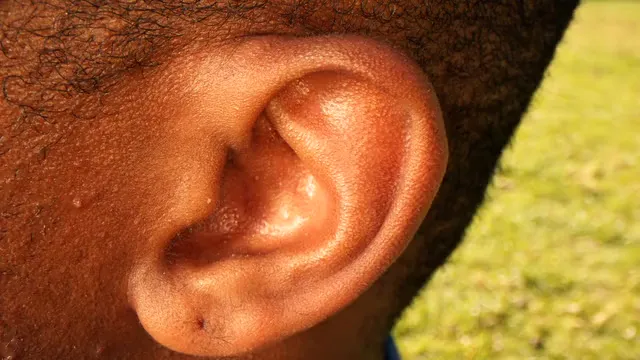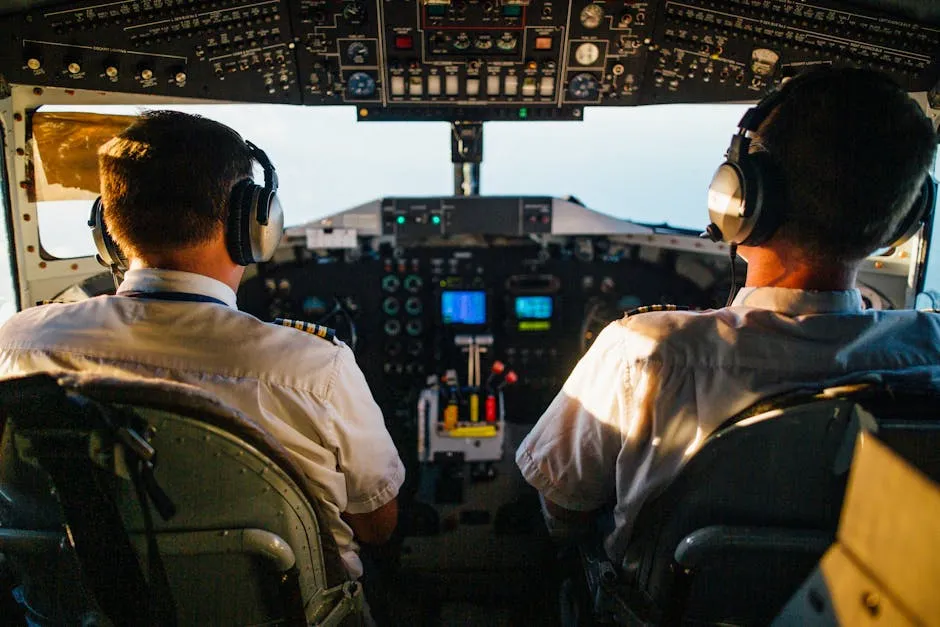
Why Do Our Ears Pop on Airplanes?
Introduction
Ah, the joys of flying! You buckle up, ready for adventure, and suddenly—pop! Your ears make a sound that could rival a bottle of champagne being uncorked. This ear-popping phenomenon is a common experience during flights, often causing discomfort for many passengers. But why does it happen?
As planes ascend to cruising altitude, the air pressure changes rapidly. Our bodies aren’t always quick on the uptake, especially our ears. This delay can lead to a pressure imbalance that feels like a mini-explosion in your head.
In this article, we’ll break down the science behind ear popping. We’ll also provide tips to alleviate that pesky discomfort. So, the next time you board a flight, you’ll be armed with knowledge and ready to conquer the skies!

Understanding Ear Anatomy and Pressure Regulation
The Eustachian Tube
Meet the unsung hero of ear health—the Eustachian tube. This small passageway runs from your middle ear to the back of your throat. It plays a crucial role in balancing air pressure on both sides of your eardrum.
When you experience altitude changes, the Eustachian tube opens and closes to equalize pressure. Imagine it as a tiny valve that needs to be activated. If it’s blocked by mucus or inflammation, it won’t function properly. This blockage can cause that infamous popping sensation as pressure builds up in your ear.
Air Pressure Changes During Flight
During a flight, cabin pressure fluctuates significantly. When a plane ascends, the cabin pressure decreases. This change happens quickly, creating a pressure difference between the air inside your ears and the cabin air.
Typically, commercial aircraft maintain a cabin pressure equivalent to about 6,000 to 8,000 feet above sea level. So, while you’re sipping your in-flight beverage, your body is adjusting to this lower pressure. If the Eustachian tubes can’t keep up, you might feel that dreaded pop.
Understanding these dynamics helps passengers manage ear discomfort better. The next time you feel your ears pop, just remember: it’s all part of the flying experience!

The Science of Ear Popping
What Causes Ear Popping?
When you board an airplane and take off, your ears may suddenly feel like a balloon that’s just been inflated. This sensation, known as ear popping, happens due to a pressure imbalance. As the plane climbs, the cabin pressure decreases rapidly, but your middle ear can take its sweet time catching up.
Your eardrum, or tympanic membrane, is a thin barrier that vibrates in response to sound waves. When there’s a difference in pressure between the air in your ear and the cabin, the eardrum gets pulled or pushed, leading to that infamous pop. It’s like a tiny tug-of-war between your eardrum and the outside air.
Along with the popping sound, you may feel a sense of fullness or discomfort. Imagine having cotton stuffed in your ears or feeling as if someone is gently pushing on them. This is your body’s way of signaling that it’s trying to adjust to the changing environment around you.
Before you board your flight, consider using nasal decongestant spray. It can help clear your Eustachian tubes, making the flying experience much smoother. Trust me, your ears will thank you!

Factors Influencing Ear Popping
Not everyone experiences ear popping in the same way. Individual factors can play a significant role in how your ears handle pressure changes. For example, the size and shape of your Eustachian tubes can affect how easily they open and close to equalize pressure. Some people have smaller tubes, making them more susceptible to discomfort.
Allergies and colds can also be culprits. When you’re congested, your Eustachian tubes may become blocked, making it harder for them to function properly. According to medical experts, this blockage can turn a simple flight into an uncomfortable experience.
Aviation professionals often advise travelers to be mindful of their health before flying. If you have a cold or allergy flare-up, consider taking precautions. Frequent flyers tend to adapt over time, learning techniques to manage ear pressure changes effectively. Some may even develop a personal routine to equalize pressure, like yawning or chewing gum.
Understanding these factors can help you and your ears stay happy in the air. Next time you feel that pop, remember that it’s a natural response to the pressure changes around you. And if discomfort strikes, you’re not alone—many travelers experience the same thing!

Common Symptoms
When flying, many passengers experience a range of symptoms due to airplane ear. The most common include:
- Popping sounds in the ears.
- A feeling of fullness or pressure.
- Mild hearing loss, like underwater muffling.
In more severe cases, airplane ear can lead to:
- Perforated eardrum, which can be excruciating.
- Vertigo, leaving you feeling dizzy and disoriented.
These symptoms can turn a pleasant flight into a challenging experience. So, why does this happen?

Long-term Effects
While most people recover quickly from airplane ear, some may face long-term complications. Persistent hearing loss is a concern for frequent flyers. Tinnitus, or ringing in the ears, is another potential outcome.
Frequent travelers develop strategies to cope over time. They learn to recognize their bodies’ signals and adapt to the pressure changes more effectively. Staying hydrated and practicing equalization techniques can make a world of difference. The key is to listen to your body and take proactive measures to minimize discomfort. Consider packing a hydration bottle on your journeys to keep those fluids flowing!
By understanding these symptoms and potential long-term effects, you can be better prepared for your next adventure in the skies.

When to Seek Medical Advice
Flying can be an adventure, but it can also bring some unwanted ear trouble. If you feel persistent pain during or after a flight, it could be time to check in with a healthcare professional. Especially if you’ve recently had an ear infection or if your ears feel unusually clogged. Ignoring these signs might lead to more significant issues.
For those prone to ear problems, there are some handy preventative measures. Consider using nasal decongestants before your flight. They can help keep your Eustachian tubes clear, making it easier to equalize pressure. Staying hydrated is also crucial. Drink plenty of water during your flight to keep mucus membranes moist and functioning well.

Expert Insights
Perspectives from Aviation Professionals
Pilots and aviation experts have their own tricks for managing ear pressure changes. Many pilots report that frequent flying helps them adapt. They often equalize pressure before takeoff and landing, making it a habit. Chewing gum or sipping water is common among them. These simple techniques activate the Eustachian tubes, making pressure equalization easier.
One aviation expert emphasizes the importance of staying aware of personal health conditions. If they have a cold or allergies, they take extra precautions. Some pilots can even consciously activate muscles near their ears to assist in equalization. Frequent flyers often share tips on forums, suggesting that staying proactive helps minimize discomfort. If you’re looking for a fun way to keep kids engaged during flights, consider airplane travel games for kids.

Medical Advice from ENT Specialists
ENT specialists frequently advise travelers to be mindful of their ear health while flying. They recommend taking a long-acting nasal decongestant a few hours before flying, especially for those with allergies. This can help mitigate inflammation that might block the Eustachian tubes.
Additionally, specialists stress the importance of knowing your personal health history. If you have a history of ear infections or sinus issues, consult your doctor before flying. Being aware of your body’s signals can prevent complications. Remember, managing ear health isn’t just about comfort; it’s essential for overall well-being during your travels. And speaking of well-being, don’t forget to pack a essential oil roller for stress relief. It’s a perfect companion for those stressful moments in the air!

Conclusion
Flying can be a thrilling adventure, but it comes with its own set of quirks, like ear popping. We’ve unraveled the mystery behind this phenomenon. It all boils down to the Eustachian tube’s struggle to equalize the pressure in your ears during altitude changes. As the plane ascends or descends, the rapid shift in cabin pressure can lead to discomfort and that annoying popping sound.
Remember the tips shared in this article! Yawning, swallowing, or using the Valsalva maneuver can work wonders. Keeping hydrated and using nasal decongestants are additional ways to ease the pressure. These simple actions can make your flying experience much more pleasant. And for those who love a cozy touch, don’t forget to bring along a travel pillow to rest your head in comfort!

Lastly, don’t forget about your ear health. Being aware of your body’s reactions during flights is crucial. If discomfort persists after landing, don’t hesitate to seek medical advice. Your ears are vital, so treat them well, and happy flying!
FAQs
Why do my ears pop when I have a cold?
When you have a cold, your Eustachian tubes may become blocked due to inflammation and mucus buildup. This blockage prevents the tubes from opening correctly, leading to pressure differences between the middle ear and the environment. As a result, the popping sensation occurs as the tubes struggle to equalize the pressure. It’s not just uncomfortable; it can also lead to more severe ear issues if not addressed.
Can ear popping cause permanent damage?
In most cases, ear popping is harmless. However, severe pressure changes can potentially lead to complications. If the pressure isn’t equalized properly, it could result in a perforated eardrum or other injuries. If you experience extreme pain or prolonged discomfort, it’s essential to consult a healthcare provider. Early intervention can prevent long-term damage.
Are children more susceptible to ear popping?
Yes, children often experience ear popping more intensely than adults. Their Eustachian tubes are narrower and more horizontal, making it harder for them to equalize pressure. Additionally, colds or allergies can exacerbate this issue. Parents can help by encouraging their children to swallow, chew gum, or yawn during takeoff and landing. Staying awake during these times also helps.
How can I prepare for a flight if I know I have allergies?
If you have known allergies, take preventive measures before flying. Use an antihistamine or nasal spray a few hours before your flight to reduce nasal inflammation. Stay hydrated, as airplane air can be dry. Consider using saline nasal sprays during the flight to keep your nasal passages moist. These steps can help minimize any potential ear discomfort.
What should I do if my ears don’t pop after a flight?
If your ears remain clogged or uncomfortable after landing, try gentle techniques like yawning, chewing gum, or the Valsalva maneuver. If discomfort persists for several hours, you may need to consult a healthcare professional. They can assess your condition and recommend appropriate treatment to alleviate any issues. Don’t ignore prolonged discomfort—your ear health is paramount!
Please let us know what you think about our content by leaving a comment down below!
Thank you for reading till here 🙂
All images from Pexels




